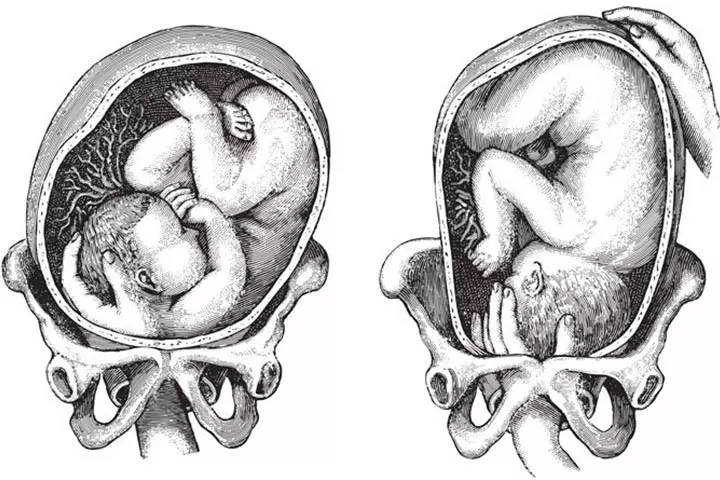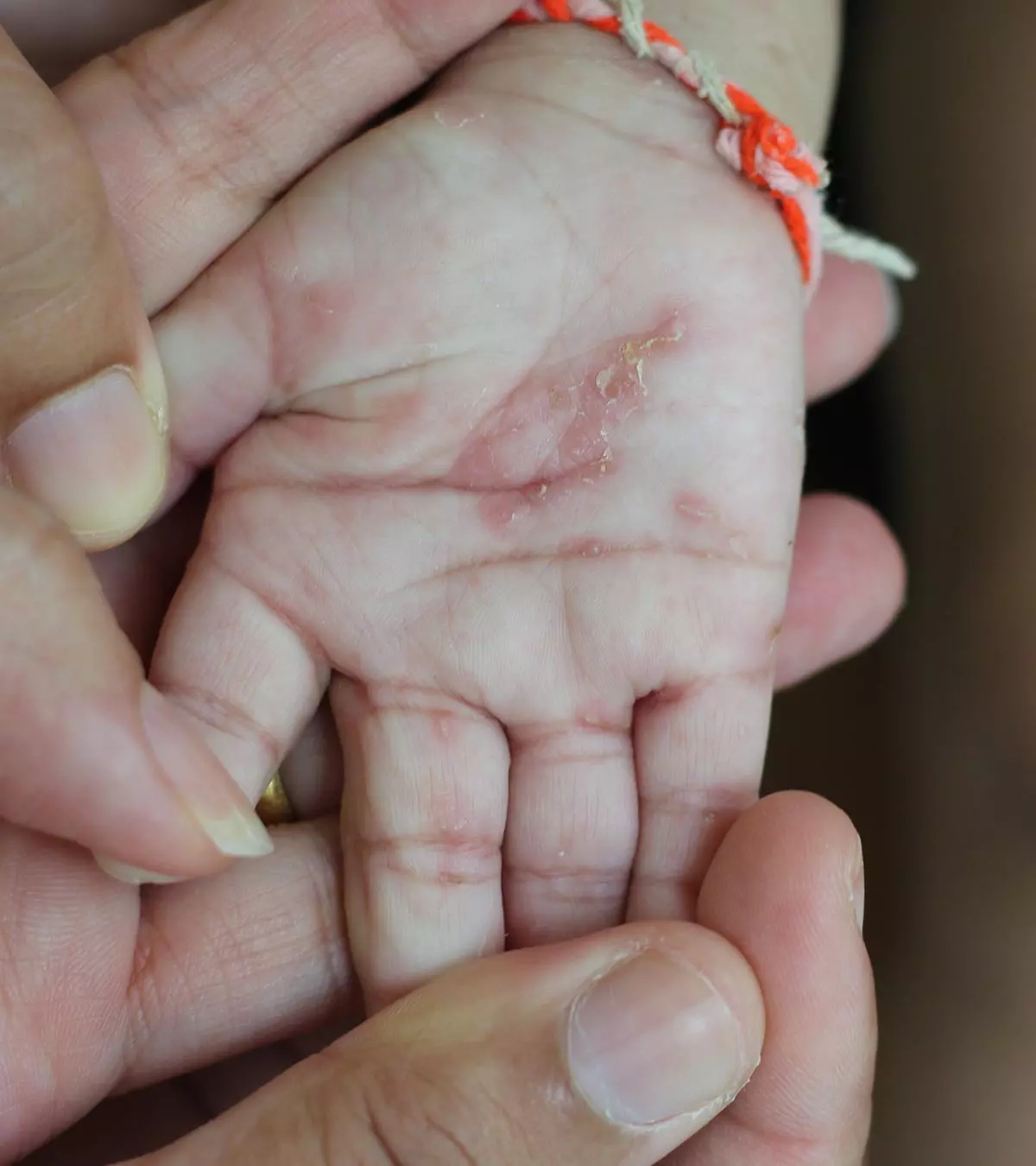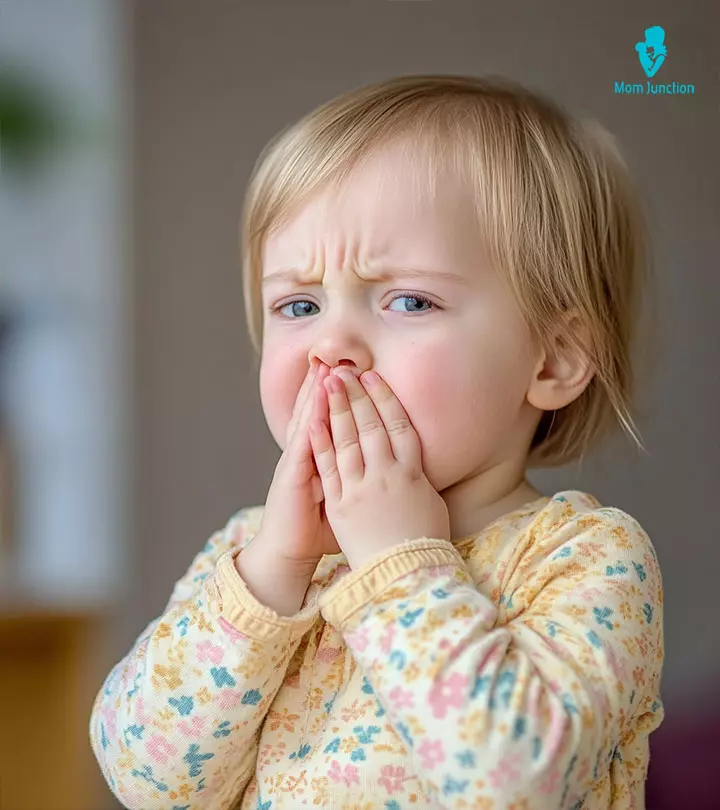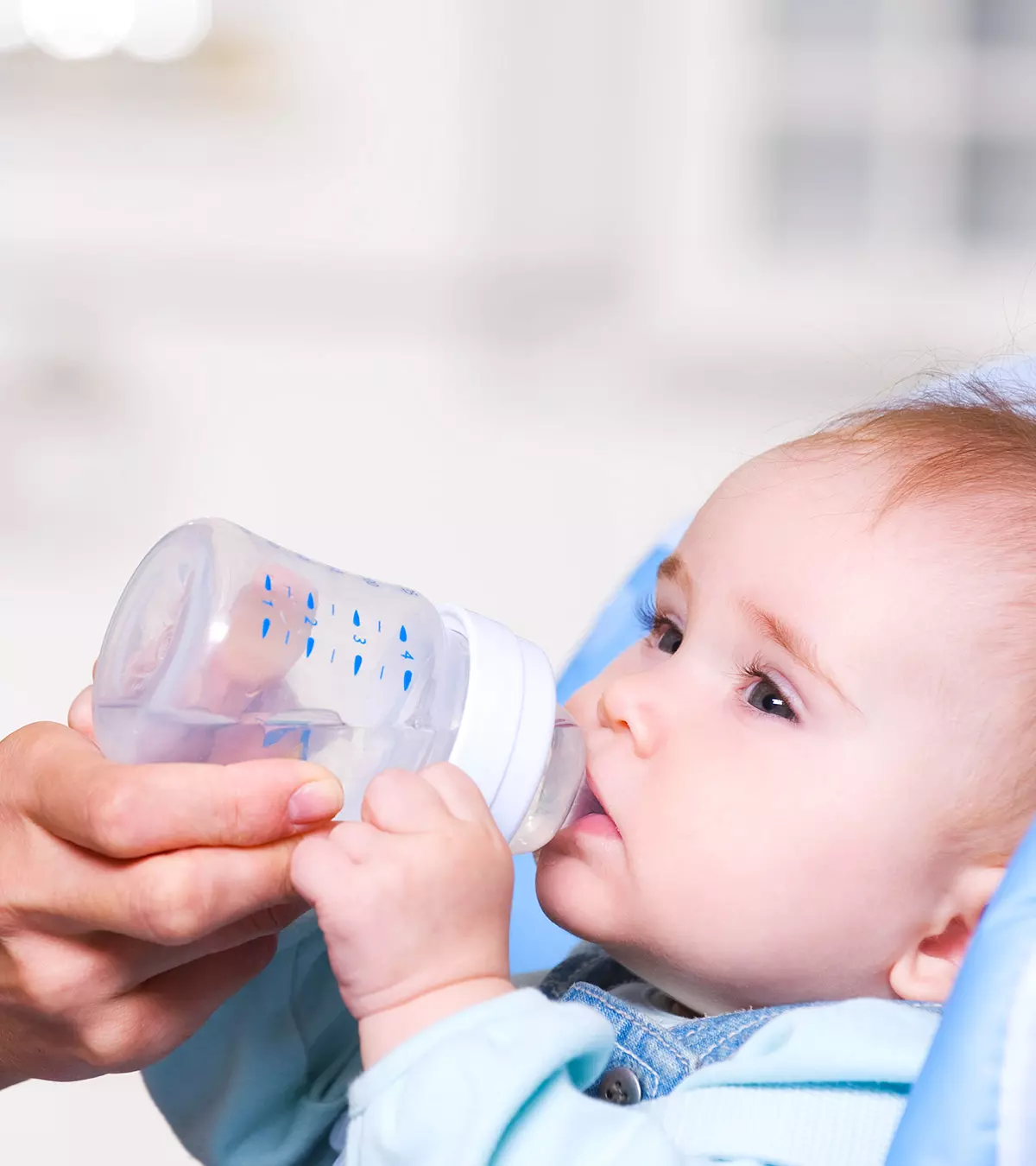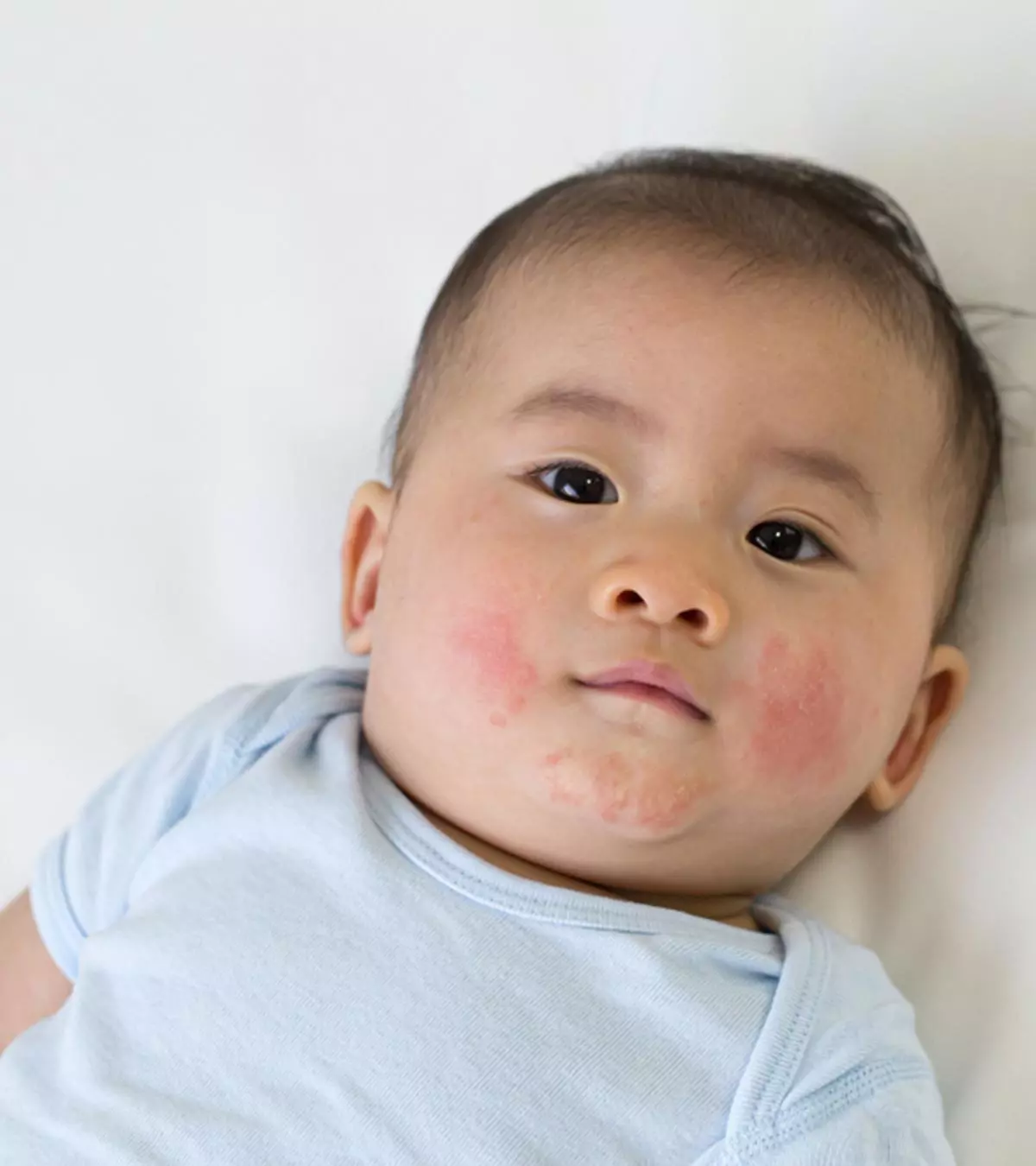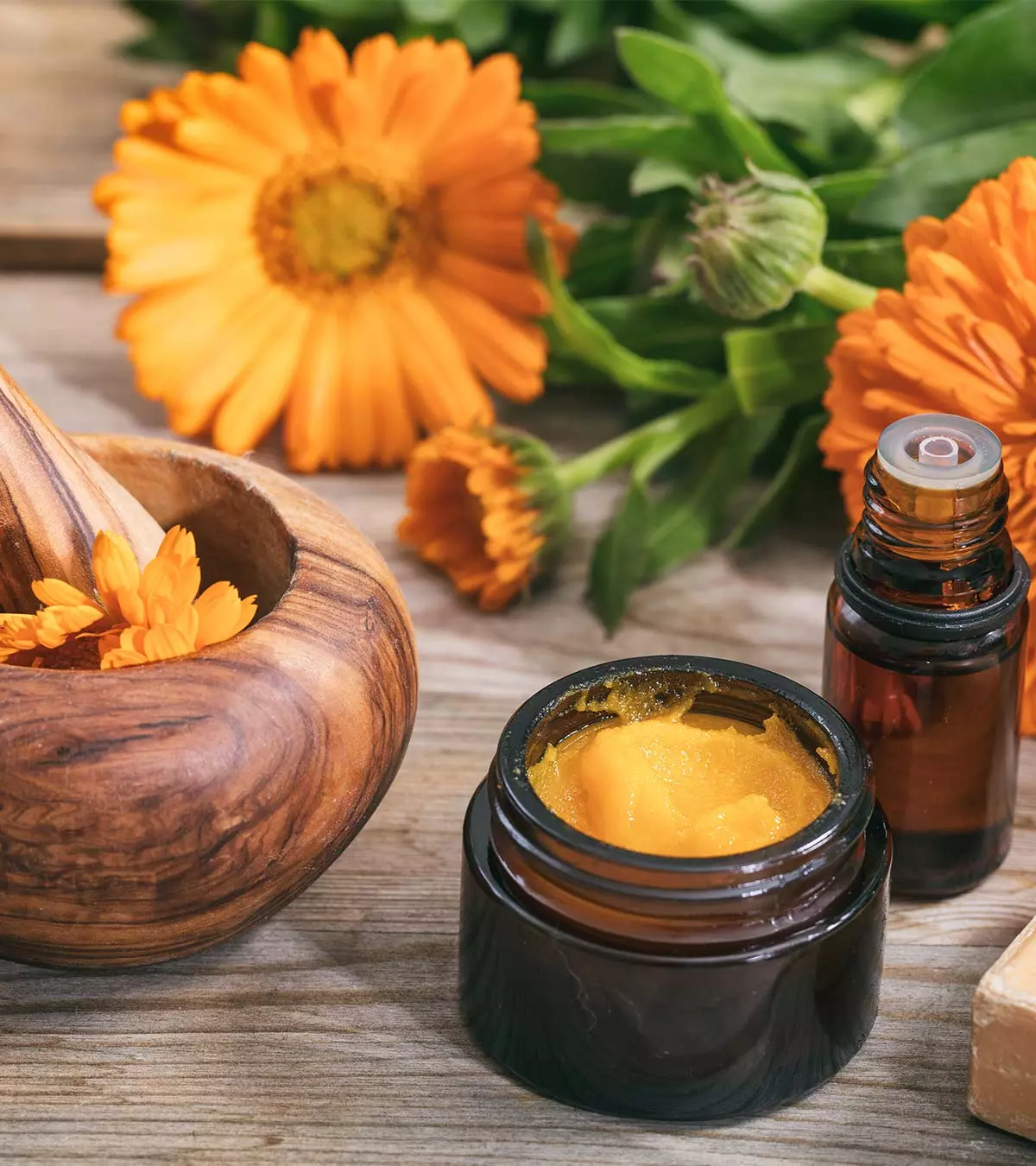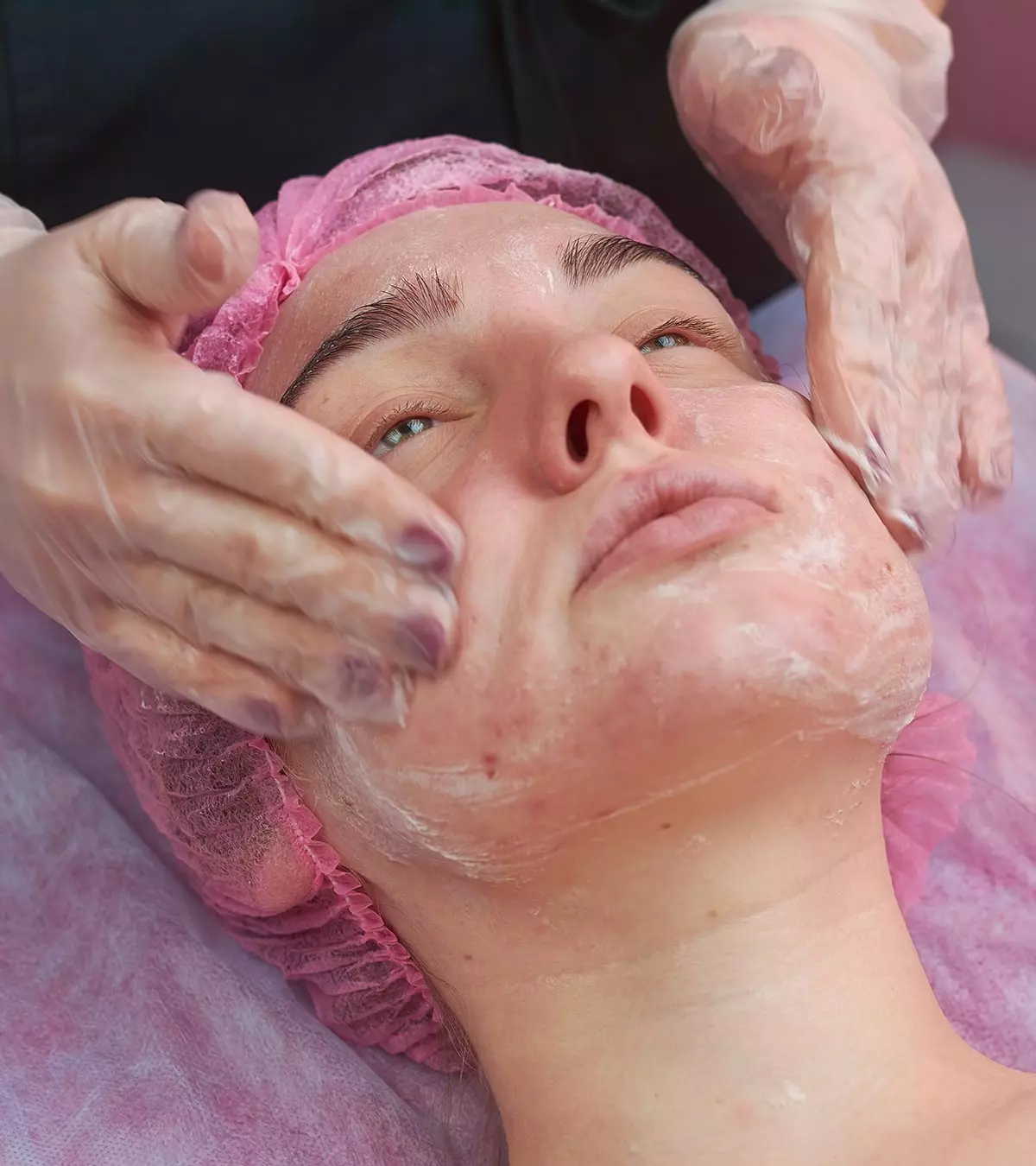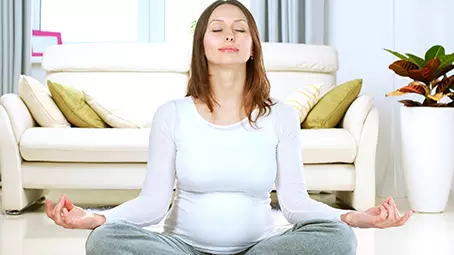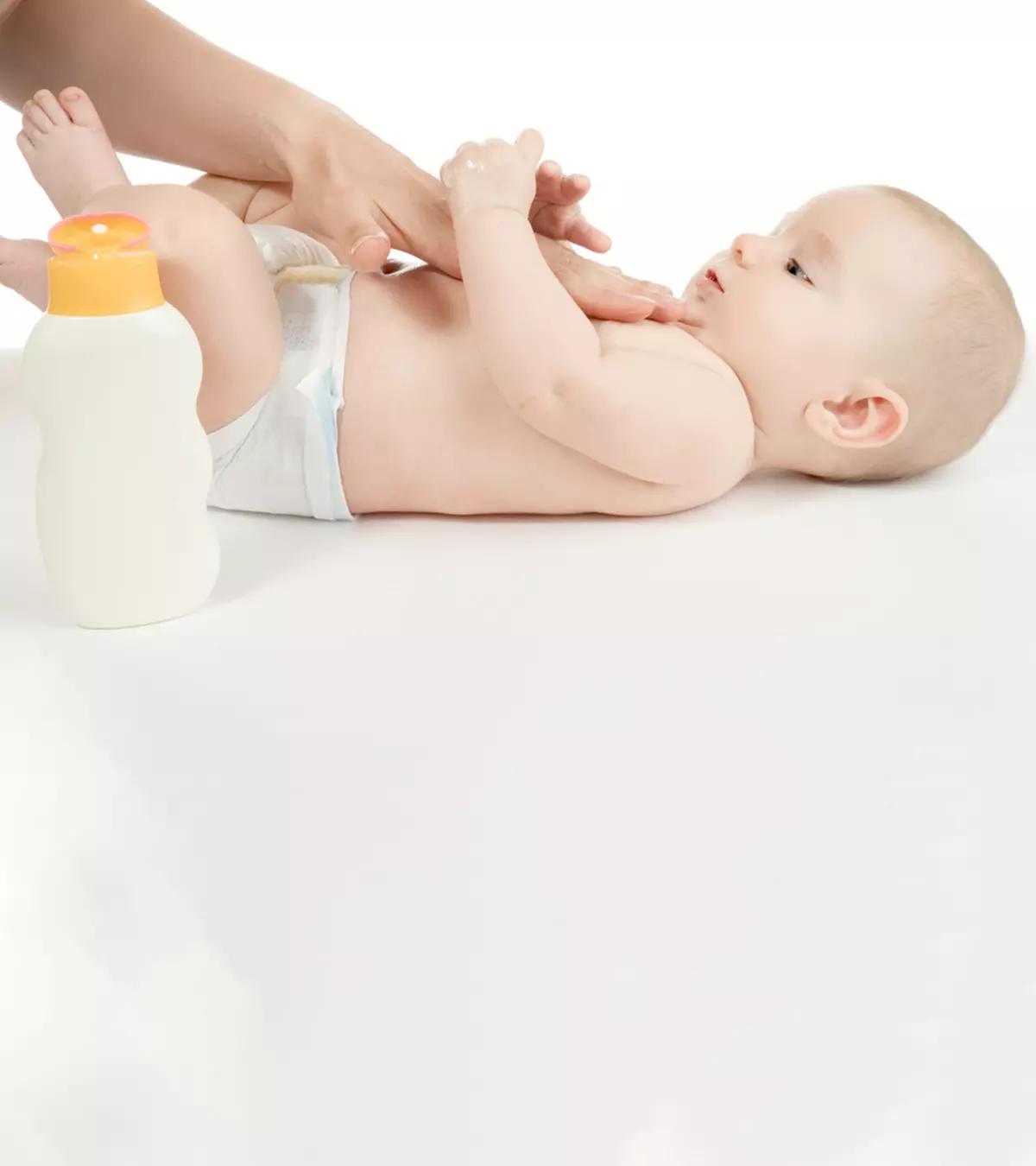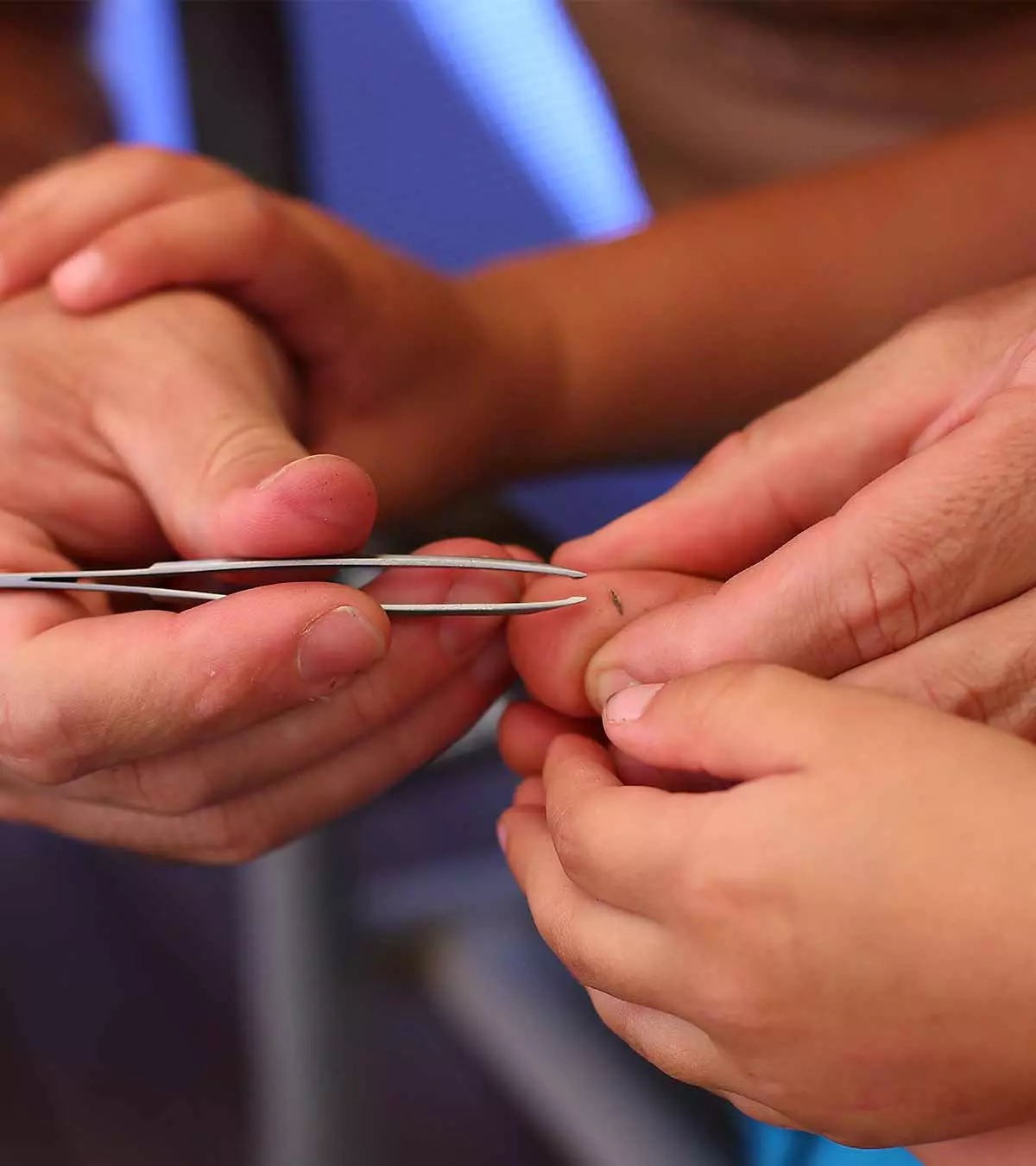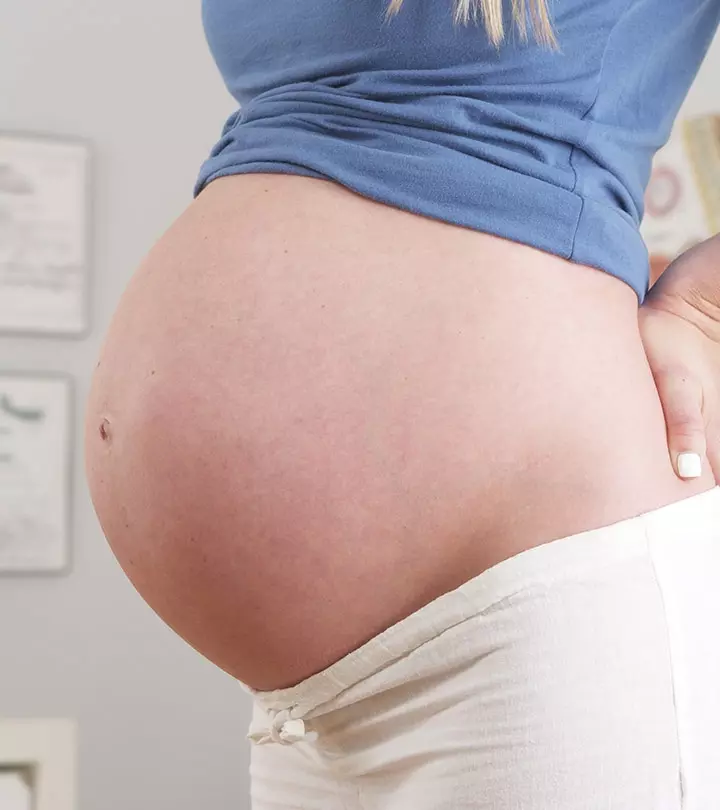
Image: ShutterStock
Hives during pregnancy may most commonly occur on the abdomen and may also spread to the limbs. Urticaria, often known as hives, is a skin condition marked by itchy, elevated red welts (bumps) (1). The Office on Women’s Health reports that approximately twenty percent of pregnant women feel itchiness during pregnancy. It’s common to feel hot and itchy when pregnant, which might lead to hives.
This post discusses the causes and symptoms of hives, treatment options, and associated concerns in pregnant women.
Key Pointers
- Urticaria or hives during pregnancy often occur on the abdomen and may spread to the limbs.
- The causes of hives during pregnancy may include hormonal changes, animal dander, insect bites, and certain foods.
- The symptoms of hives are raised red welts on the skin, pain, itchiness, localized swelling, and dry skin.
- To treat hives, doctors may suggest using topical creams or oral antihistamines.
- Home care remedies for hives during pregnancy include applying aloe vera gel, taking oatmeal baths, and bathing in lukewarm water.
- Preventive measures to avoid hives during pregnancy include wearing loose clothing, avoiding hot baths, reducing exposure to chemicals, and reducing stress.
Is It Normal To Have An Outbreak Of Hives During Pregnancy?
There is no research to suggest that there is an increased risk of having hives during pregnancy. Your possibility of developing hives during pregnancy is the same as the risk during non-pregnancy times.
 Quick fact
Quick factWhat Causes Hives During Pregnancy?
As your body undergoes changes during pregnancy, the immune system may perceive these changes as foreign. Thus, it releases histamine into the bloodstream, and this histamine could cause hives on your body and face (1).
Hives may be triggered by factors including (2):
- Animal dander
- Medicines
- Chemicals
- Insect bites
- Pollen
- Fish, shellfish, eggs, nuts, milk, or other food allergies

A severe kind of hives called pruritic urticarial papules and plaques of pregnancy (PUPPP) could develop in the third trimester. It appears in the stretch marks of the belly and spreads towards the chest and legs (3).
Symptoms Of Hives During Pregnancy
Hives mostly appear as tiny grouped welts on the arms, legs, and back. They may keep changing places too.
Pregnancy hives may be associated with any of the following signs and symptoms.
- Raised red welts on the skin
- Severe pain
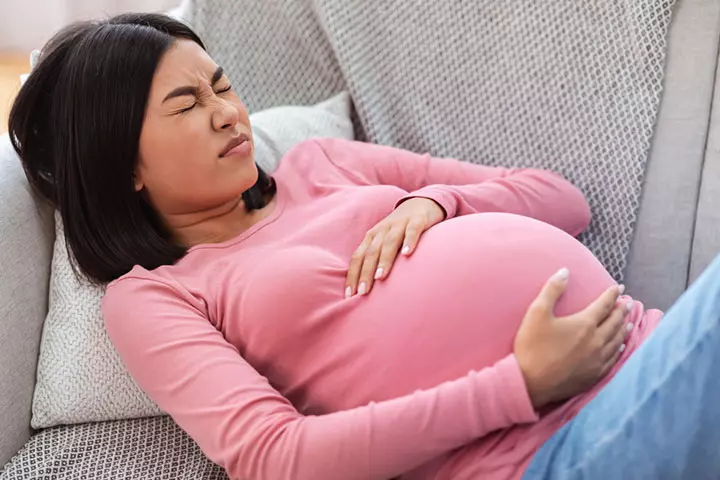
Cami, an expecting mom and blogger, developed hives during the 40th week of pregnancy. Sharing her symptoms, she writes, “I have now broken out in hives all over my body. Red, weltish, itchy, itchy, itchy hives! Constant itch… then constant pain… then constant itch all over (i).”
 Things to know
Things to knowTreatment For Hives During Pregnancy
Do not self-medicate by taking over-the-counter medications. Consult your doctor and follow their prescription. For pregnancy hives, your doctor may prescribe over-the-counter antihistamines such as Benadryl, Allegra, Claritin, Chlor-Trimeton, and Zyrtec (4). For a severe skin rash, such as PUPPP, they may suggest oral medications and anti-itch creams. Additionally, in severe cases, the doctor may prescribe a low dose of corticosteroids or topical creams containing corticosteroids for quick healing. However, it is not advised to use them without consultation.
For a severe rash, such as PUPPP, they may suggest oral medications and anti-itch creams.
 Experts say
Experts sayNatural Remedies For Hives During Pregnancy
Some natural remedies have been found to provide relief from itching and rashes. Some of them are:
- An oatmeal bath is found to relieve itching that is caused by hives (5). It is anti-inflammatory and has skin-protecting properties.
- Aloe vera is known for its cooling effect. Extract fresh aloe vera gel and apply it to the affected area (6). Leave it for some time and wash with cold water.
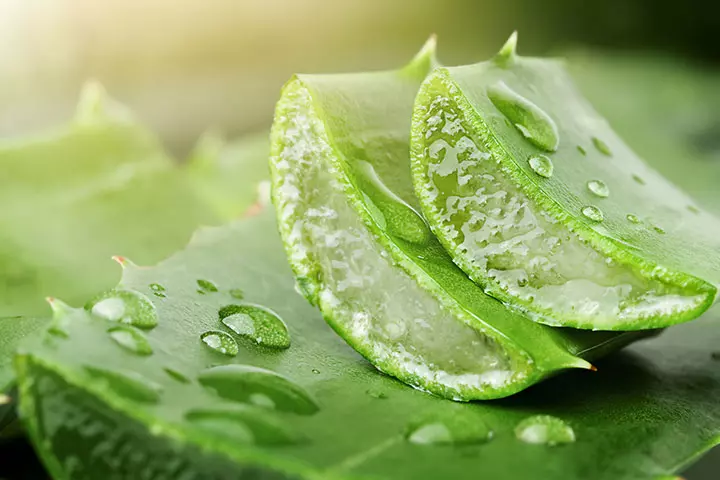
- Take a bath in lukewarm water as hot water may trigger excessive blood flow, aggravating the itch. Coldwater is a better choice as it could reduce the itch.
- Green tea has antioxidant and anti-inflammatory properties. Consuming green tea in pregnancy may help eliminate toxins and allergens, thereby relieving itching (7).
- It is believed that a clean cloth dipped in milk dabbed on the affected area may ease inflammation.
- Adding a few tablespoons of baking soda to your bathtub or applying a baking soda paste made by mixing three teaspoons of baking soda with one teaspoon of water on the affected areas may help relieve itching (8).
- You may also use witch hazel for the same purpose. It contains antioxidants and natural tannins that are helpful in reducing irritation and inflammation due to hives. Witch hazel solution is available over the counter or may be prepared at home by boiling 5 to 10 grams of witch hazel bark in a cup of water. Strain the bark out and apply directly on the affected areas, allow it to stay for about 15 minutes, and then wash off (9).
- Peppermint can be applied topically as a soothing and cooling agent. It helps reduce irritation caused by hives (10). Peppermint oil may have similar effects when applied diluted in a carrier oil.
Tips To Prevent Hives During Pregnancy
If you are susceptible to hives, you may tend to experience them during pregnancy too. Therefore, following these prenatal care could help prevent or minimize your risk of this skin condition.
- Avoid tight-fitting synthetic clothes, prefer cotton underwear.
- Avoid hot baths and hot showers.
- Do not put any pressure on your skin.
- Do not scratch your skin.
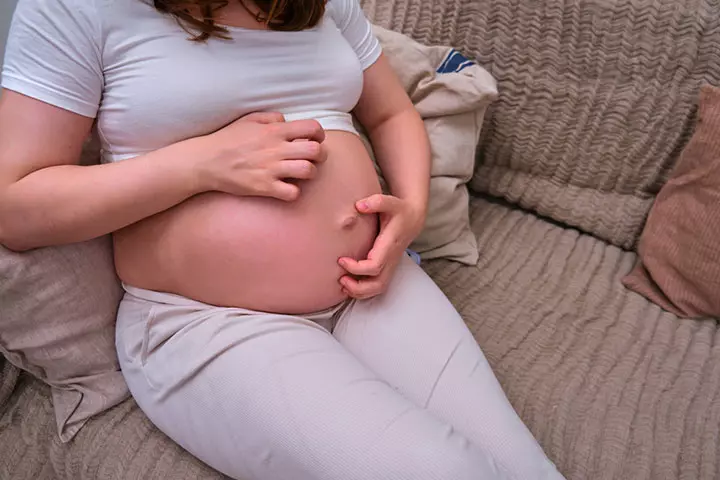
Do Pregnancy Hives Go Away?
Pregnancy hives may go away within a week of delivery. However, in some cases, they may last for six weeks after delivery, a condition known as postpartum hives.
Are Hives Dangerous During Pregnancy?

Pregnancy hives are usually harmless and clear up on their own. However, they could be problematic if you develop them in and around the genitals. In rare cases, a breakout of hives could lead to breathing difficulty, especially if it turns into anaphylaxis (severe allergic reaction) (1). Anaphylaxis is swelling of the face, eyes, lips and throat , you may experience breathing difficulty, it is an emergency and you need to visit a health facility as soon as possible.
Frequently Asked Questions
1. Can hives predict the baby’s gender?
There is a belief that rash and itchy skin during pregnancy indicates a baby girl, whereas clear skin indicates a baby boy. However, it doesn’t have any scientific backing.
2. Can you get hives in early pregnancy?
If you are prone to hives, you are likely to get them in early pregnancy too.
3. Can hives affect the baby during pregnancy?
Hives in pregnancy may not harm fetal health. Also, there are no reported risks to the baby while in the womb and after birth.
4. Are hives linked to miscarriage?
Hives are not related to miscarriage. There are no studies to link hives to miscarriage.
5. Why do hives get worse at night?
All allergic reactions, including hives, are often found to worsen at night as plasma histamine levels usually increase at night (10).
6. What should I do if my hives worsen?
If your hives worsen, seek immediate medical attention, especially during pregnancy. Warning signs include difficulty breathing, swollen face/throat, dizziness, or if hives persist beyond 24 hours. Document your symptoms with photos, avoid triggers, and contact your healthcare provider for guidance for milder cases. Take prescribed antihistamines if approved by your doctor.
Hives is a skin infection that causes itchy, raised red bumps. Though not all pregnant women develop hives, its history may increase your possibility. Also, certain medicines, chemicals, seafood, and other factors can be triggers for hives during pregnancy. While most cases of hives resolve on their own, some may require medical intervention, but self-medication with OTC drugs is not recommended. Instead, taking preventive measures by avoiding tight-fitting, wearing synthetic clothing, and using home treatments like aloe vera gel, oatmeal bath, and other natural remedies could effectively alleviate hives and relieve you.
Infographic: Natural Remedies For Hives During Pregnancy
Hives during pregnancy are generally harmless, but the itching and pain can make you uncomfortable. And if you want all-natural remedies to be your first choice for dealing with your health problems during pregnancy, check out some easy and effective ways to manage hives naturally at home in the infographic. Illustration: Momjunction Design Team
Illustration: Hives (Urticaria) During Pregnancy: Causes And Treatment
_during_pregnancy_causes_and_treatment_illustration.jpg.webp)
Image: Dalle E/MomJunction Design Team
Personal Experience: Source
MomJunction articles include first-hand experiences to provide you with better insights through real-life narratives. Here are the sources of personal accounts referenced in this article.
i. 40 weeks bump date- Still pregnant;https://worthingtonave.blogspot.com/2014/09/40-weeks-bumpdate-i-pregnant.html
References
1, Hives; U.S. Department of Health and Human Services National Institutes of Health
2. Hives; NHS
3. Chourouk Chouk and Noureddine Litaiem; Pruritic Urticarial Papules And Plaques Of Pregnancy (PUPPP); StatPearls Publishing (2020).
4. JoLyn Seitz; Pregnancy and allergies: Avoiding medication better for baby; Sanford Health (2018).
5. Caring for Yourself During Pregnancy and Beyond; UCSF Medical Center
6. Mahtab Alam Khan; Shara (Urticaria); National Health Portal (2017).
7 . Amy Huddleston; Green Tea:
Nature’s Rediscovered Ancient Medicine; Southern Illinois University Carbondale / Ethnobotanical Leaflets (1999).
8. Hives; Southern Iowa Mental Health Center
9. Hives:Causes and Natural Remedies; Association of Accredited Naturopathic Medical Colleges
10. Peppermint; Mount Sinai
11. Pia Christ et al.; The Circadian Clock Drives Mast Cell Functions in Allergic Reactions; NCBI (2018)
12.Hives; ACAAI
13. Over-the-Counter Medications in Pregnancy American Academy of Family Physicians
Community Experiences
Join the conversation and become a part of our nurturing community! Share your stories, experiences, and insights to connect with fellow parents.
Read full bio of Dr. Burcu Saygan Karamürsel
Read full bio of Rebecca Malachi
Read full bio of Swati Patwal
Read full bio of Dr. Joyani Das











